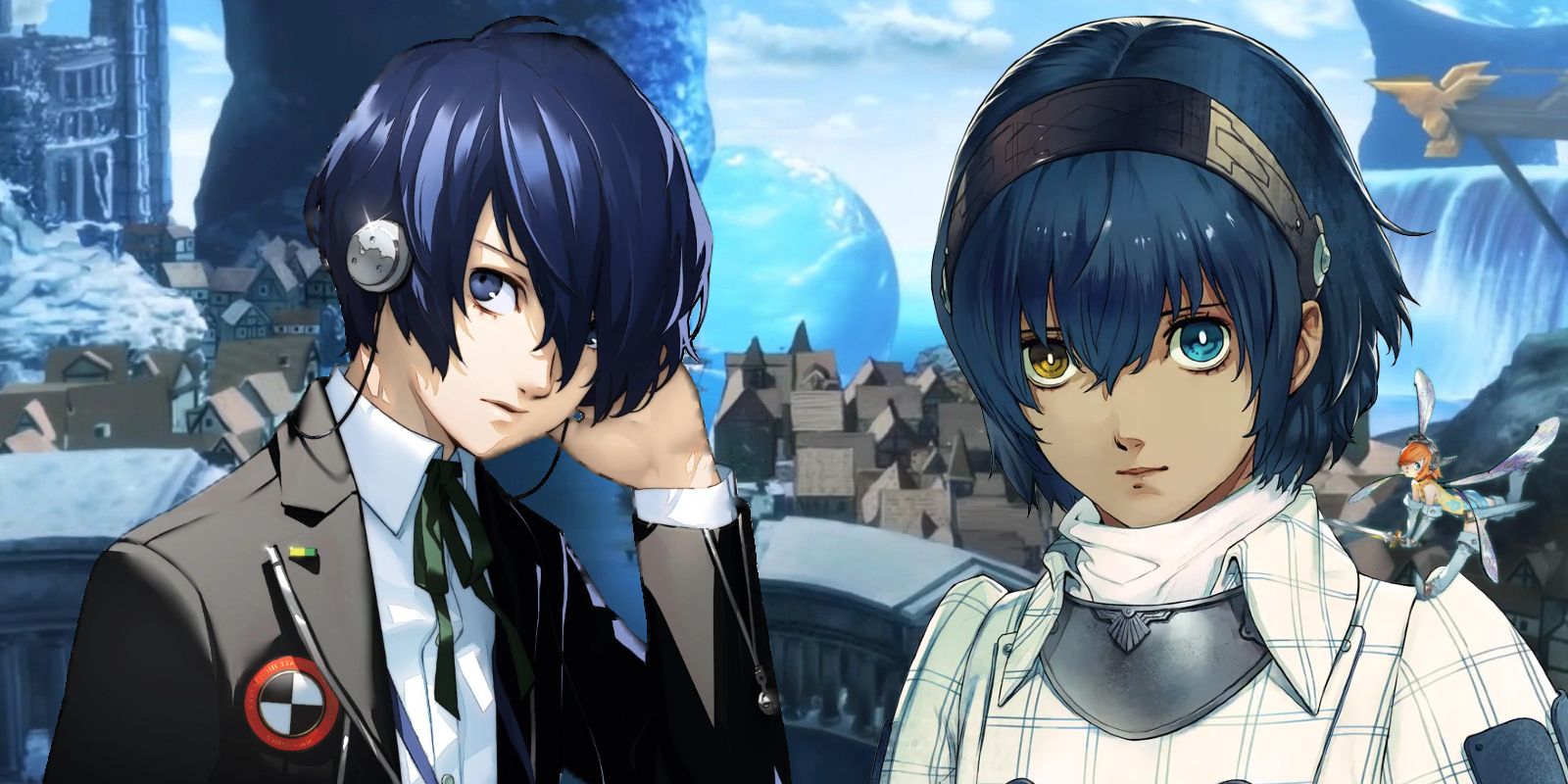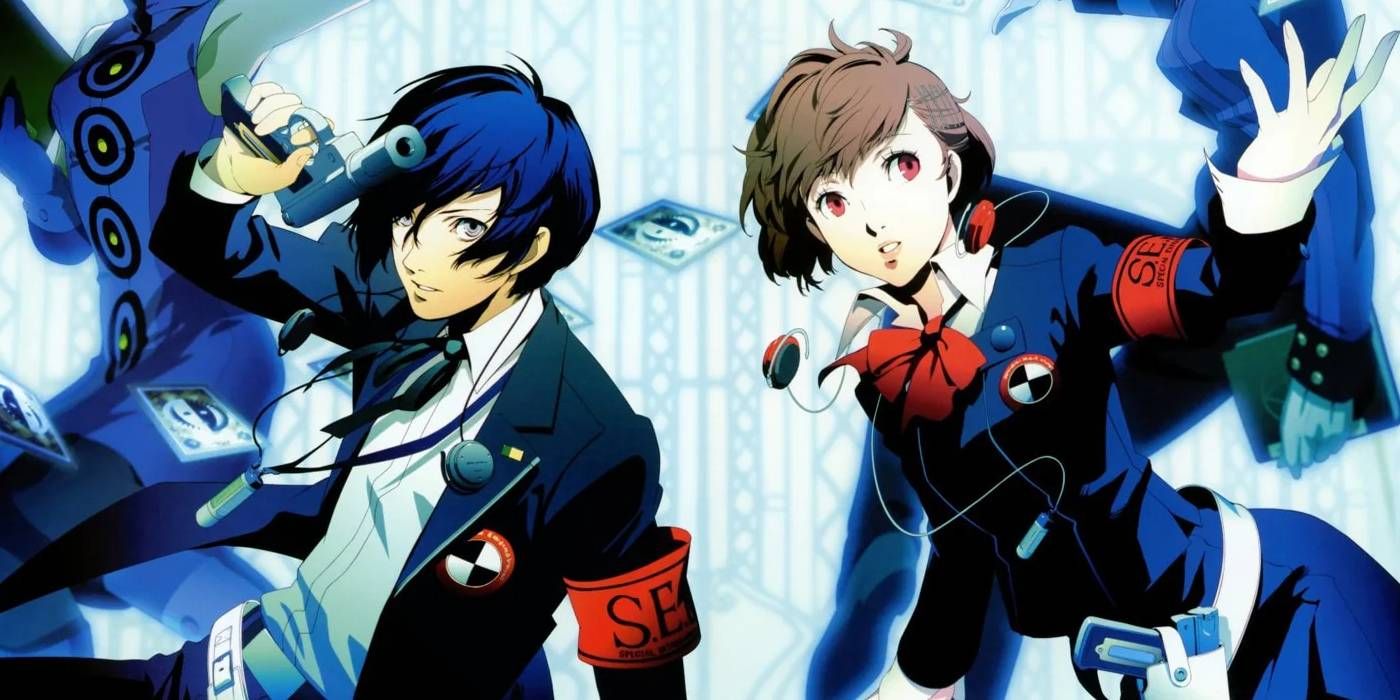
Metaphor: Refantazio Has received a lot of bad press for his music, but it is not all that bad. Suffice to say that Persona Fans have high expectations for metaphors score - it was composed by the prolific Atlus composer Shoji Meguro, responsible for every main line Persona Game's soundtrack, as well as that of many Shin Megami Tensei Games. Meguro is known for drawing inspiration from various genres of contemporary music, which often sets his music apart from other fantasy RPGs' more generic orchestral soundtracks. Recently, Meguro drew extensively on jazz and soul in composing the iconic Persona 5 OST.
Meguro is also responsible for the music in Atlus' latest release, Metaphor: RefantazioAn RPG that draws on elements of Shin Megami Tensei And PersonaBut is set in a completely new world. metaphorHis music has already faced heavy criticismWith players and reviewers calling it everything from unmemorable to downright bad. But there is real artistic merit to its score, and very little objectively bad about it—it is just different from what Persona Fans are used to.
Composing with intent
Fans expect something more than that Persona Out of metaphors soundtrack are always going to be disappointing, because A funky, poppy score just wouldn't make sense with metaphors Verify. It takes place in a purely fantasy world, in which technology and culture have barely advanced past early industrialization. It has nothing to do with the modern, cosmopolitan settings of Persona 3 And 5 (Or the still-modern, but rural setting of 4) — in fact, anything resembling a modern city is pointedly depicted as the setting of an in-game fantasy book, as distant to its characters as, say, Middle-earth is to us.
Related
Of course, RPG music doesn't always have to be digestible - Metaphor: Refantazio would hardly be the first RPG to score its pseudo-historical fantasy with electric guitars and drum machines. But in metaphorIt actually is. In an early scene, it's clear that the protagonist actually hears the battle theme ringing in his ears as he starts a meeting. His fairy companion Gallica's magic takes the form of music, and changes based on the situation at hand. It wouldn't really make sense for him to listen to a happy, poppy soundtrack While he's fighting for his life and kingdom.
It is clear that There was an artistic intention behind making Metaphor: RefantazioOST sound like it does. There is a clear vision to it: much of the game is scored by trumpets that evoke epic scenes of battle, reflecting the civil war that is the basis of the game's story. And, quite a bit like Persona, metaphor Liberally uses vocal tracks, especially choral tracks, representative of the voices of the oppressed people that the protagonist strives to save. And the lyrics also have a unique twist that ties into the game's main themes.
The in-world language of Metaphor: Refantazio Is not English or Japanese, however A fictional language inspired by Esperanto. It is a constructed language developed by Polish ophthalmologist LL Zamenhof in 1887. His goal in creating Esperanto was to create a universal second language, simplify international communication and finally unite the diverse inhabitants of our world through a common tongue.
Compare that concept to the world of Metaphor: RefantazioWhich is set between a world of nine different tribes. Each of them discriminates against members of the other, but, before the game's action, all are kept in control by a single powerful king. His assassination creates a power vacuum, with representatives of each tribe vying for control. The goal of the protagonist is to succeed the king and create a world of harmony, in which the tribes all work together for their mutual benefit. His vision of the world is similar to that of Zamanhof - only his people already have a language.
And when metaphorThe music is good, it's really good. Not every song is perfect, but the main battle themes are epic enough. There are some nice tunes to emphasize moments of exploration, both in the city and in the field. metaphor Has it where it counts.
Persona's OST isn't as good as you remember it
Persona 3 - 5 have a lot of forgettable tracks
and true, Anyone unfavorably comparing metaphors soundtrack to the Persona Games' is misremembering just as well as the average Persona Trace is. Sure, there are some really great ones: "Last surprise"has earned his praise;"your love"is an earworm;"Burn my alarm"Is an all-time classic. But not every track can be"Under the mask." For every hit, there are a handful of flops. Every single game has an obligatory this-scene-is-funny song, NPC-shares-a-sob-story song, and something-mommy-is-happening song, every Which is repeated hundreds of times throughout the game.
There is nothing wrong with that: Persona Games are long and long-winded, and depict a variety of different moods. Their soundtracks need to be diverse enough to score different kinds of scenes, but generic enough that they can be reused infinitely. They need to fit on game discs and be within the abilities of one (very talented) person to compose. It's just that the less memorable moments tend to fall by the wayside during discussions about Persona OSTs.
Related
That's why each Persona Game has a handful of excellent standout tracksAnd those are what people tend to remember. These usually arise from similar contexts in each game; The battle themes are always iconic, the exploration themes are always delightful, and dungeon themes, the velvet room music or something else used to emphasize how strange and otherworldly a place is always beautiful.
The music in metaphor Is good (and bad) in the same placesAlthough in different ways. Battle themes are evocative, exploration themes are transporting, and the otherworldly Akademeia theme is stunning. There is a lot of generic incidental music that plays during dialogue scenes, but this will inevitably be forgotten in the wider conversation about the brilliance of metaphors music.
so no metaphors music does not sound like Personas, but that's a good thing. It accomplishes the same goals, uniquely fitting the game's setting and story, setting the tone for its action and thoughtfully exploring its themes.
